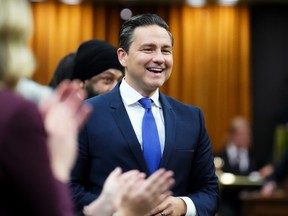NICOSIA, Cyprus (AP) — In a Cypriot National Guard camp, Ukrainians are being trained on how to identify, locate and dispose of landmines and other unexploded munitions that litter huge swaths of their country, killing and maiming hundreds of people, including children.
Analysts say Ukraine is among the countries that are the most affected by landmines and discarded explosives, as a result of Russia’s ongoing war.
According to U.N. figures, some 399 people have been killed and 915 wounded from landmines and other munitions since Russia’s full-scale invasion of Ukraine on Feb. 24, 2022, equal to the number of casualties reported from 2014-2021. More than 1 in 10 of those casualties have been children.
The economic impact is costing billions to the Ukrainian economy. Landmines and other munitions are preventing the sowing of 5 million hectares, or 10%, of the country’s agricultural land.
Cyprus stepped up to offer its facilities as part of the European Union’s Military Assistance Mission to Ukraine. So far, almost 100 Ukrainian armed forces personnel have taken part in three training cycles over the last two years, said Cyprus Foreign Ministry spokesperson Theodoros Gotsis.
“We are committed to continuing this support for as long as it takes,” Gotsis told the Associated Press, adding that the Cyprus government has covered the 250,000 euro ($262,600) training cost.
Cyprus opted to offer such training owing to its own landmine issues dating back five decades when the island nation was ethnically divided when Turkey invaded following a coup that sought union with Greece. The United Nations has removed some 27,000 landmines from a buffer zone that cuts across the island, but minefields remain on either side. The Cypriot government says it has disposed of all anti-personnel mines in line with its obligations under an international treaty that bans the use of such munitions.
In Cyprus, Ukrainians undergo rigorous theoretical and practical training over a five-week Basic Demining and Clearance course that includes instruction on distinguishing and safely handling landmines and other explosive munitions, such as rockets, 155 mm artillery shells, rocket-propelled grenades and mortar shells.
Theoretical training uses inert munitions identical to the actual explosives.
Most of the course is comprised of hands-on training focusing on the on-site destruction of unexploded munitions using explosives, the chief training officer told the Associated Press. The officer spoke on condition of anonymity because he’s not authorized to disclose his identity for security reasons.
“They’re trained on ordnance disposal using real explosives,” the officer said. “That will be the trainees’ primary task when they return.”
Cypriot officials said the Ukrainian trainees did not want to be either interviewed or photographed.
Defusing discarded munitions or landmines in areas where explosive charges can’t be used — for instance, near a hospital — is not part of this course because that’s the task of highly trained teams of disposal experts whose training can last as long as eight months, the officer said.
Trainees, divided into groups of eight, are taught how to operate metal detectors and other tools for detecting munitions like prodders — long, thin rods which are used to gently probe beneath the ground’s surface in search of landmines and other explosive ordnance.
Another tool is a feeler, a rod that’s used to detect booby-trapped munitions. There are many ways to booby-trap such munitions, unlike landmines which require direct pressure to detonate.
“Booby-trapped munitions are a widespread phenomenon in Ukraine,” the chief training officer explained.
Training, primarily conducted by experts from other European Union countries, takes place both in forested and urban areas at different army camps and follows strict safety protocols.
The short, intense training period keeps the Ukrainians focused.
“You see the interest they show during instruction: they ask questions, they want to know what mistakes they’ve made and the correct way of doing it,” the officer said.
Humanitarian data and analysis group ACAPS said in a Jan. 2024 report that 174,000 sq. kilometers (67,182 sq. miles) or nearly 29% of Ukraine’s territory needs to be surveyed for landmines and other explosive ordnance.
More than 10 million people are said to live in areas where demining action is needed.
Since 2022, Russian forces have used at least 13 types of anti-personnel mines, which target people. Russia never signed the 1997 Ottawa Convention banning the use of anti-personnel mines, but the use of such mines is nonetheless considered a violation of its obligations under international law.
Russia also uses 13 types of anti-tank mines.
The International Campaign to Ban Landmines said in its 2023 Landmine Monitor report that Ukrainian government forces may have also used antipersonnel landmines in contravention of the Mine Ban Treaty in and around the city of Izium during 2022, when the city was under Russian control.
